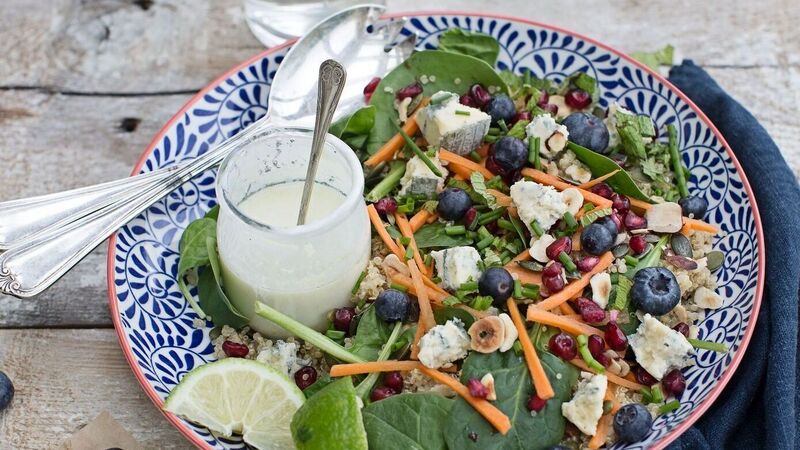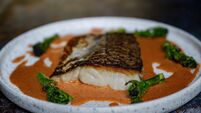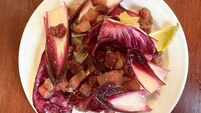Derval O'Rourke: My ultimate superfood salad to boost gut health

In recent years there has been increased information about the human gut and the considerable impact it has on whole-body health. I recently worked with health coach Cathy Dunleavy and asked her to share her knowledge of this area in a live workshop with my online derval.ie community. I learned a huge amount from her talk and I will share some of the main points in this week’s column. I will also share my recipe for a superfood salad. It’s full of healthy fats, leafy greens and is great for the gut!
Your gut is made up of organs like your oesophagus, stomach and intestines. Your gut health refers to the state these organs are in and their natural balance of bacteria. When you have poor gut health, it can often result in discomfort, diseases or infections, poor sleeping habits, lack of energy and much more. Your gut health plays a large role in your overall health.
It might seem odd to have bacteria in your stomach, but there is in fact “good” bacteria and “bad” bacteria. There are about a trillion bacterial cells in your gut and they live in the microbiome. We need to look after our microbiome so that we can have a strong immune system, good mental health, good energy, a healthy heart and of course a healthy gastrointestinal system itself.
Eating plenty of fibre is an excellent way to “feed” the good bacteria. This is also known as prebiotics. It is recommended you aim for at least 30g a day of fibre, by eating a wide variety of vegetables and fruit.
Some great sources include:
- Bananas
- Apples with the skin
- Garlic
- Onion
- Leeks
- Seeds (chia, flax etc).

Like any dietary changes, it is important to do this slowly. If your gut is not used to getting a sufficient amount of fibre and it is suddenly overloaded with a large volume, it is hard to digest and can often lead to discomfort and bloating.
It can be tempting to load your plate with veggies, but take it slowly and introduce a variety of vegetables and fruits gradually. Be mindful of any particular food that might trigger a reaction. It can be a good idea to have a small food diary and note down what you’ve introduced and whether it caused a good or bad reaction. One of the most important things to remember is to be patient.
These are the “good” bacteria that help maintain a healthy gut. Some sources of probiotics can be found in foods like natural yoghurt, some cheeses, bone broth & fermented foods such as kefir, sauerkraut, kimchi, kombucha, etc.
You can find probiotics as a supplement, but before you reach for them, it’s best you get an experts opinion, chat to your doctor, dietitian or pharmacist. You don’t want to cause an imbalance of “good” and “bad” bacteria and you might be surprised at something simple like adding more vegetables to your diet might help.
Grab a pen and paper and make a note of all your meals and the ingredients you used for one day. See if you notice any areas where more fruit and vegetables could be added.
Health tip: Exercise is a good way to get things “moving” in the gut. If you’re feeling a bit bloated, getting some movement in can help ease this and settle the stomach. Something like a 30-minute walk can do wonders. However, listen to your body and stop if the bloating continues or you find yourself having any pain.
Prep Time: 30 minutes
Serves: 1
- A small bowl of cooked quinoa
- 1 tbsp toasted nuts eg pine nuts, cashews or flaked almonds
- 1 piece of fruit prepared such as a handful of blueberries
- A handful of leaves or raw vegetables such as baby spinach
- 3 tbsp olive oil
- Handful of fresh herbs such as basil or mint
- 2 tbsp mixed seeds such as pumpkin and sunflower
- A pinch of salt
- 1 tbsp Greek yoghurt to garnish
Place all of the ingredients in a serving bowl, except for the greek yoghurt and mix well.
Garnish with the greek yoghurt and serve.



